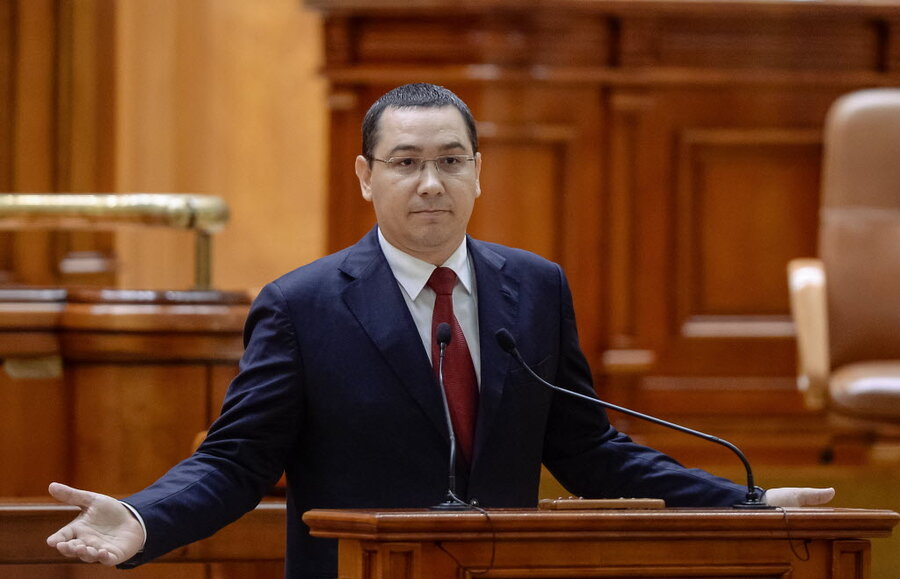Can Romania end its dependence on Russian gas?
Loading...
Eastern Europe is largely dependent on Russia for its energy, a dependency that comes with some political risk. Several countries are hoping to change that, with varying degrees of success.
Romania is preparing to hold its first oil and gas summit in Bucharest in March 2016, hoping to attract some larger international oil and gas companies. The Romanian government is positioning the event as an opportunity to help the European Union pursue and achieve energy security by developing new sources of supply.
Romania, unlike some of its neighbors, is less dependent on Russian imports as a share of its consumption of natural gas. Although 100 percent of its imported gas comes from Russia, those imports only make up about one-quarter of what the nation needs to meet domestic demand.
But the country’s production is heading in the wrong direction. Romania produced around 400 billion cubic feet of natural gas in 2013, about one-fourth of what it produced in the 1980s. Declining production has become a concern for the government. But there is still a lot of gas in place. Romania has the fifth largest reserves of natural gas in Europe, according to the EIA. And there is a lot of potential for shale gas production. The government scrapped a moratorium on shale gas development in 2013, hoping to kick start a shale revolution after watching the shale gas success in the United States.
Late last year, Romania rolled out a national energy strategy for 2015-2035. The plan called for $111.8 billion in investment in oil and gas. “We can learn much from the U.S. Romania is ready to learn from the U.S. example and enter the 21st century in energy technology and opportunities. My message to you is that Romania has healthy relations and is eager to promote those relations in the conventional and unconventional resources in onshore and offshore exploration. It is about having the investment and technology,” Victor Ponta, Romania’s Prime Minister, told a Houston conference in 2014.
Indeed, the U.S. government has tried to accelerate the development of shale gas in Eastern Europe. In 2010, the State Department, under its former Secretary Hillary Clinton, pushed the Global Shale Gas Initiative, which pursued “government to government policy engagement to bring federal and state governments’ technical expertise, regulatory experience in ensuring the safety of water supplies and air quality, and diplomatic capabilities to bear in helping selected countries understand their shale gas potential and the responsibilities of governments.” Romania was high on the list for the State Department, as the U.S. wanted to undermine Russia’s influence in Eastern Europe.
However, shale development ran into some pretty stiff roadblocks, despite heavy promotion by the American and Romanian governments. Protests from various Romanian communities have slowed drilling. Romania’s Prime Minister blamed the protests on “environmental activists from Russia,” a not so subtle suggestion that the protests were contrived by outside forces in order to keep Romania dependent on Russian gas.
Whether or not that was true, Chevron, the oil major that was spearheading shale development, decided to pull out of Romania, damaging the country’s chances of developing its shale resources. Chevron drilled some exploration wells and conducted 2D seismic surveys, but ultimately decided to focus on other assets around the world in the face of low oil prices, which in any case may have weighed much more on the company than local protests. Romania became another in a series of European countries that has hyped up the potential for shale, but has failed to see any results.
Romania is still looking to exploit shale gas onshore, but it is also increasingly interested in oil and gas production offshore in the Black Sea. OMV Petrom, a Romanian subsidiary of Austria’s OMV, is working on a joint venture with ExxonMobil to develop the Neptun concession in the Black Sea, where large reserves of natural gas were discovered in 2012. Low oil prices are delaying development, but the companies are processing seismic data and plan on drilling further. OMV Petrom describes the 2012 discovery as “a play opener.”
The discovery is also raising interest a little bit to the south, where Bulgaria is hoping to replicate Romania’s success. Royal Dutch Shell just won a concession to drill in Bulgarian waters, not too far away from the Neptun discovery.
The timing is not great, given the collapse of oil prices, but Romania and Bulgaria, having failed thus far to develop shale gas, are hoping the Black Sea can contribute to energy security for the region.







